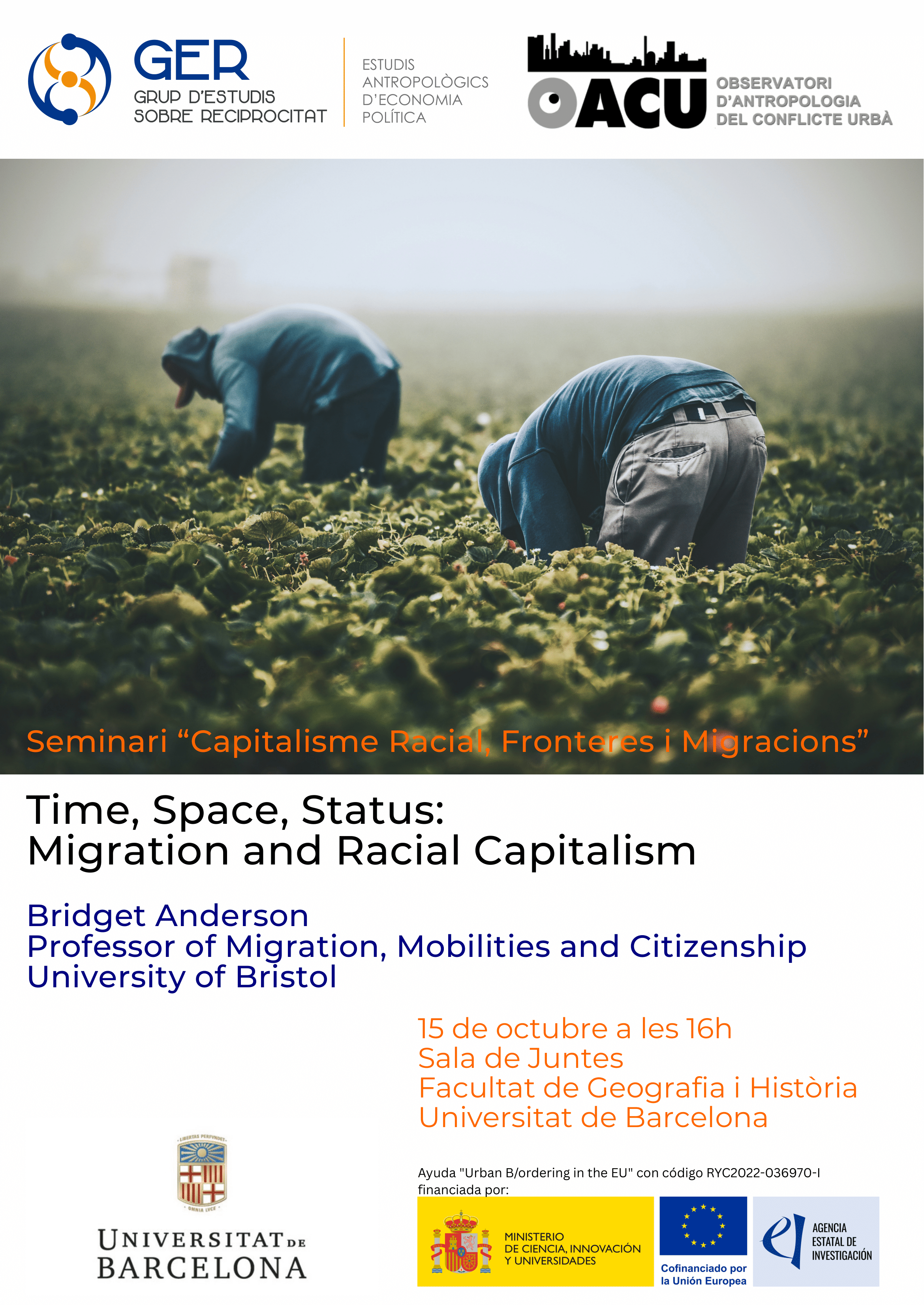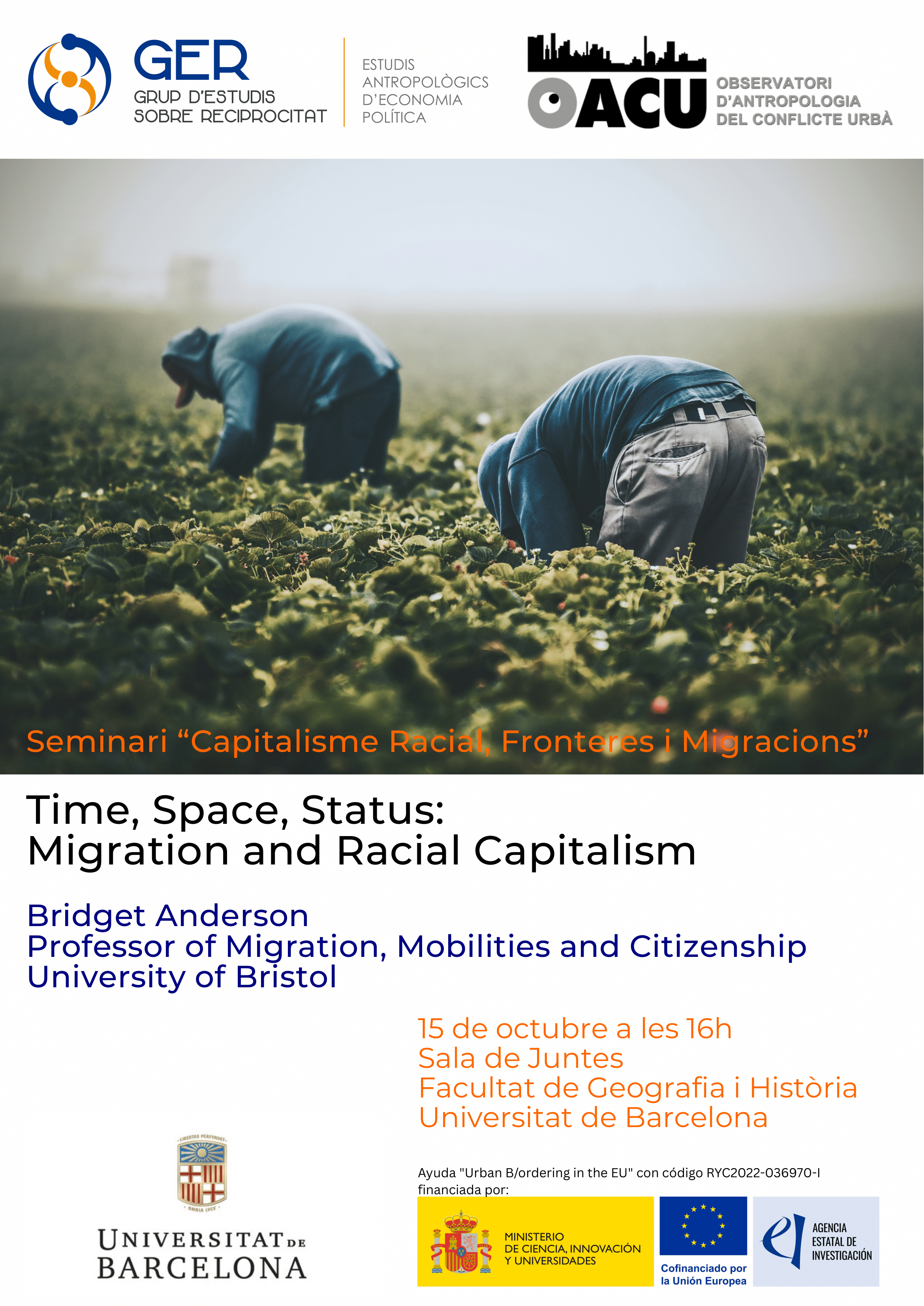
Seminari | Capitalisme Racial, Fronteres i Migracions de Bridget Anderson
📢 Seminari “Capitalisme Racial, Fronteres i Migracions” amb Bridget Anderson (Univ. Bristol)
🗓️ 15 d’octubre, 16h
📍 Sala de Juntes, Facultat de Geografia i Història, UB
🔍 Reflexions sobre migració i capitalisme racial
El títol del seminari és: ‘Time, Space, Status: Migration and Racial Capitalism’
Bridget Anderson és la directora de Migration Mobilities Bristol i professora de migració, mobilitats i ciutadania. Està interessada en la relació entre migració, raça i nació, històricament i en el món contemporani. Pren com a punt de partida que el "migrant" i el "ciutadà" i les diferències entre ells es construeixen en la llei i en la pràctica social i política. Està especialment interessada en com les lleis d'immigració fan tipus particulars de relacions laborals, i la seva recerca actual inclou el projecte finançat per la UE PRIME – Protecting Irregular Migrants in Europe. El seu recent volum editat: Rethinking Migration: Challenging Borders, Citizenship, Race és publicat per Bristol University Press i és d'accés obert.
Abstract: By attending to temporality, migrantisation, and the politics of precarity, this talk explores how racial capitalism governs through time, space, and status. It argues that migration should be analysed, not as a disruption to national labour markets, but as a constitutive element of global racial capitalism, and that it is crucial to reconfigure political alliances between citizens and non-citizens. I will begin by asking, if humans have always moved, when does movement become migration? The answers show how political this seemingly neutral category and I argue that public understandings of the migrant as poor and racialised reflect the logics of immigration regimes that use race and class to govern movement. I will then consider precarity, thinking with and against migration, focussing on how both citizens and migrants are subject to precarious work exacerbated by controls over time and mobility. These controls are exercised using different policy frameworks for both groups, but all experience a sense of lack of control over their lives and futures. Through attending to immigration controls we can see that skill is an important factor in inducing precarity, so I follow that clue to explore what migration tells us about the role of ideas of skill in labour markets more generally. Finding similarities and shared interests across differences is necessary to the deeply embedded and highly affective tropes that are powerfully at work in our politics and repositioning the migrant as a co-worker rather than a competitor for privileges of membership.
